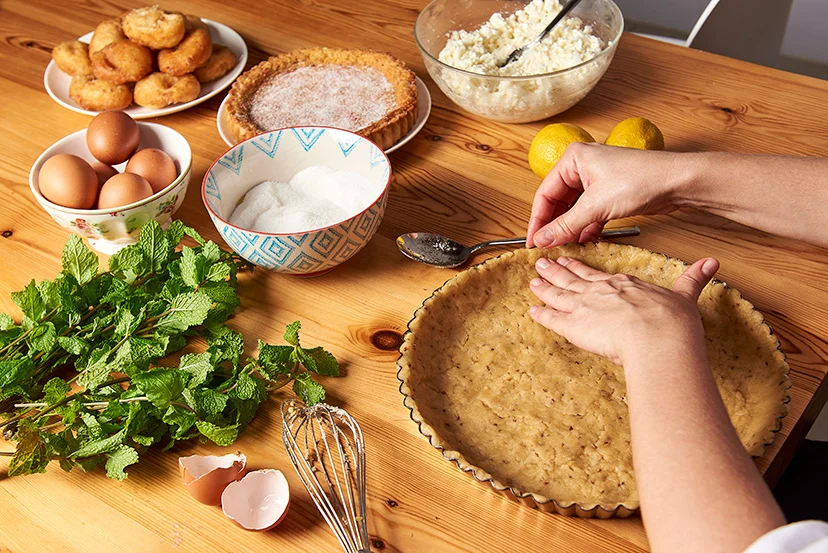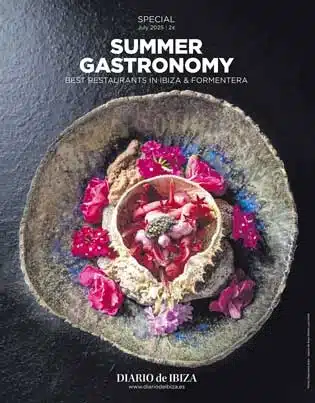Easter in Ibiza is a time of profound cultural significance, marked by age-old traditions that have been passed down through generations. While the island is widely known for its beaches, vibrant nightlife, and summer tourism, during Easter, a more traditional and deeply rooted side of Ibizan culture emerges. Families gather to observe religious celebrations, take part in processions, and, most importantly, prepare and enjoy traditional Easter dishes that have been a staple of Ibizan households for centuries.
The island’s cuisine during this time is closely linked to religious customs, especially those related to Lent and Holy Week. Before Easter Sunday, meat consumption is limited, which has led to the prominence of vegetable-based dishes such as cuinat. Once the period of fasting is over, Easter Sunday and the following days bring an explosion of flavours with delicious desserts like flaó, orelletes, and bunyols.
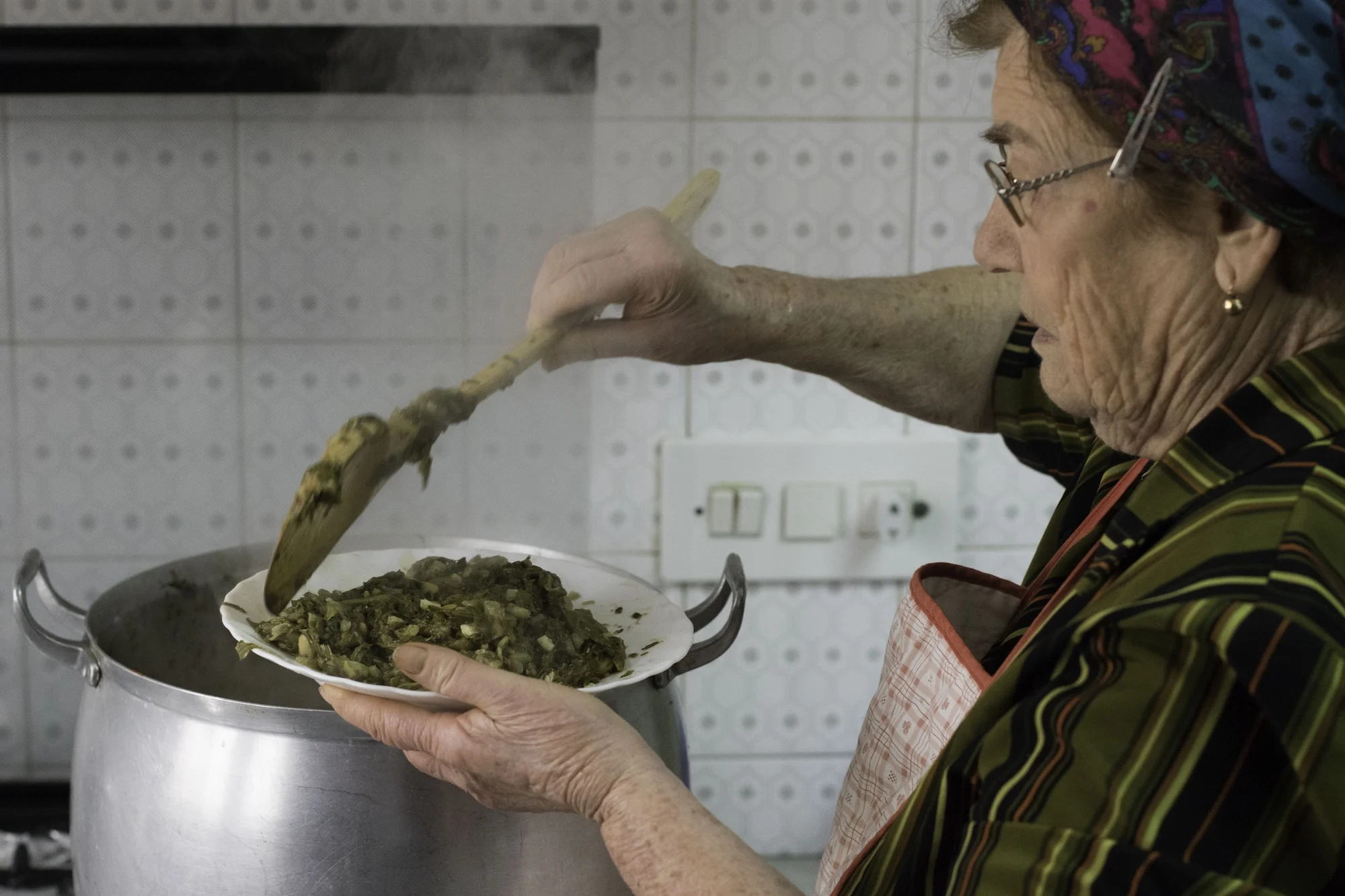
These traditional foods not only showcase the island’s rich culinary heritage but also tell stories of its past, blending local ingredients with influences from various cultures that have shaped Ibiza over the centuries.
Cuinat: the quintessential legume stew
At the heart of Ibiza’s Easter culinary tradition is cuinat, a dish deeply tied to Good Friday, when many Ibicencos follow the Catholic practice of abstaining from meat. This thick, greenish stew is prepared using wild herbs, particularly collejas (known locally as verdura), a type of edible plant that grows naturally in the Ibizan countryside during spring.
The origins of cuinat can be traced back to medieval times when foraging was a common practice, and people relied heavily on local wild plants for their meals. The dish is typically cooked with pulses such as lentils or beans, potatoes, onions, and sometimes almonds, creating a simple yet hearty meal full of nutrients. Slow-cooked to allow the flavours to blend, cuinat is a comforting dish that embodies the rustic and resourceful nature of Ibizan cuisine.
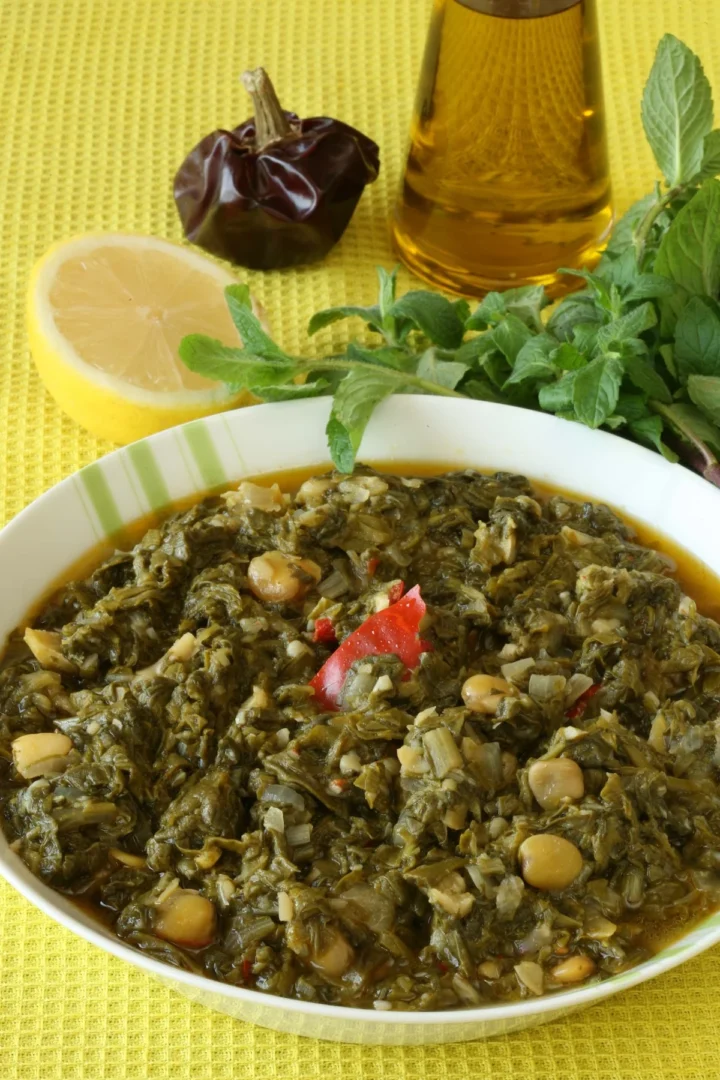
Despite its humble ingredients, preparing cuinat is a meticulous process, often passed down through generations. It is traditionally eaten in family gatherings on Good Friday, bringing people together in a spirit of reflection and togetherness.
Flaó: the traditional Easter cheesecake
Among Ibiza’s most famous desserts, flaó holds a special place on the Easter table. Originally, this dessert was only prepared during Easter, but due to its popularity, it has become available year-round. However, it remains closely associated with Holy Week and the celebrations surrounding it.
The origins of flaó date back to the Middle Ages, influenced by both Catalan and Moorish traditions. The unique flavour combination of cheese and mint reflects the Arab influence on Balearic cuisine, as the Moors commonly used aromatic herbs in their sweets.
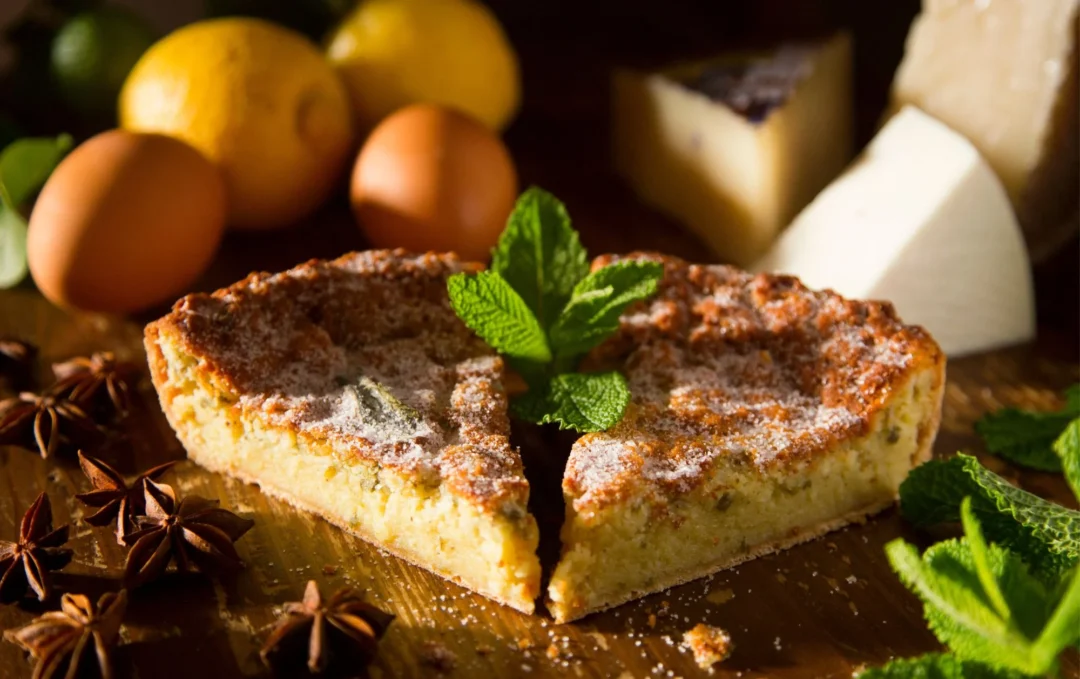
The recipe for flaó consists of a delicate pastry crust filled with a mixture of fresh goat or sheep cheese, eggs, sugar, and a touch of anise and mint. The mint gives the cheesecake its distinctive aroma and taste, making it refreshingly different from other traditional European cheesecakes. Baked until golden, flaó is often dusted with powdered sugar and served as a special treat after Easter Sunday meals.
In many Ibizan households, the preparation of flaó is a cherished family tradition, with recipes varying slightly from one family to another. It is often enjoyed with a glass of hierbas ibicencas, a local herbal liqueur that enhances its flavour.
Orelletes: festive fried pastries
Another sweet delight that appears on Ibizan tables during Easter is orelletes. These anise-flavoured pastries are named after their distinctive ear-like shape (“orella” means “ear” in Catalan).
Orelletes have been part of Ibizan festivities for centuries and are typically prepared for major celebrations such as weddings, local fiestas, and, of course, Easter. The recipe includes flour, eggs, sugar, anise liqueur, and lemon zest. The dough is carefully rolled out, cut into shapes, and then fried until golden. Once fried, the pastries are dusted with sugar, giving them a delightful sweetness and crunchy texture.
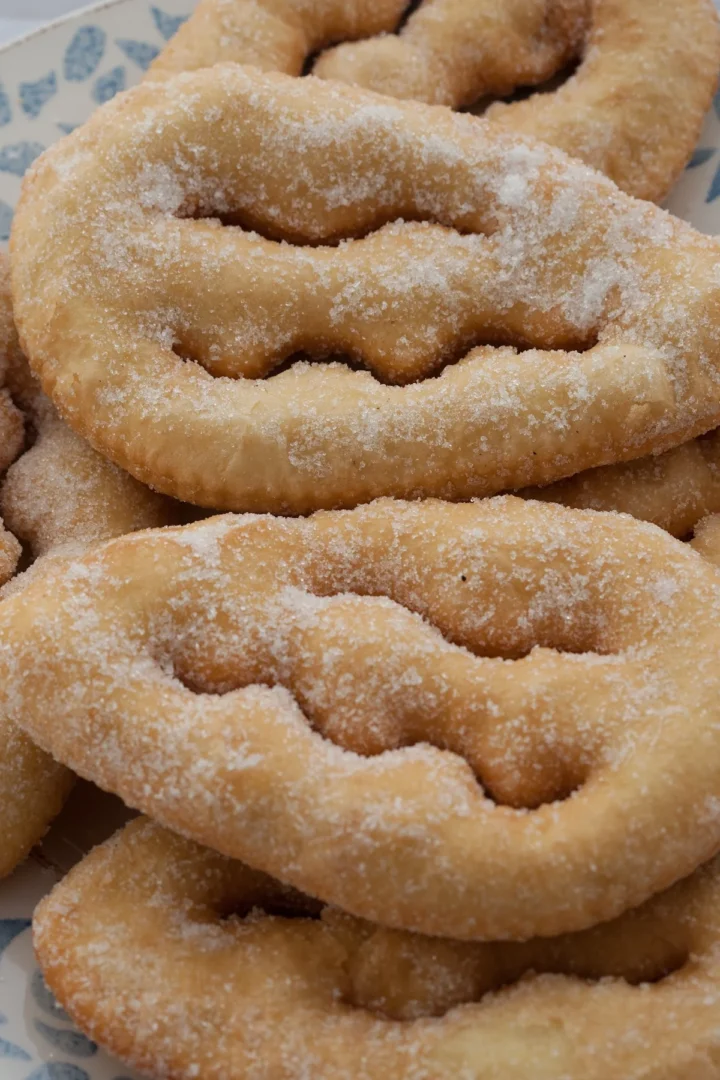
Traditionally, orelletes are made in large batches, often as a communal activity where several generations of a family come together to knead, shape, and fry them. This aspect of their preparation strengthens family bonds and ensures that the recipe is passed down through generations.
During Easter, orelletes are commonly served with coffee or hierbas ibicencas, making them a staple of post-lunch gatherings.
Bunyols: a sweet symbol of celebration
Bunyols are another must-have treat during Easter in Ibiza. These small, deep-fried doughnuts have a soft, airy texture and are coated in sugar. They are typically made from a dough consisting of flour, eggs, sugar, and anise, sometimes incorporating mashed potatoes for added softness.
The tradition of making bunyols during Easter has its roots in the concept of celebration following the Lenten period of fasting. As Easter Sunday marks a time of feasting, bunyols symbolise joy and indulgence. They are often enjoyed warm, freshly fried, and shared among family and friends.
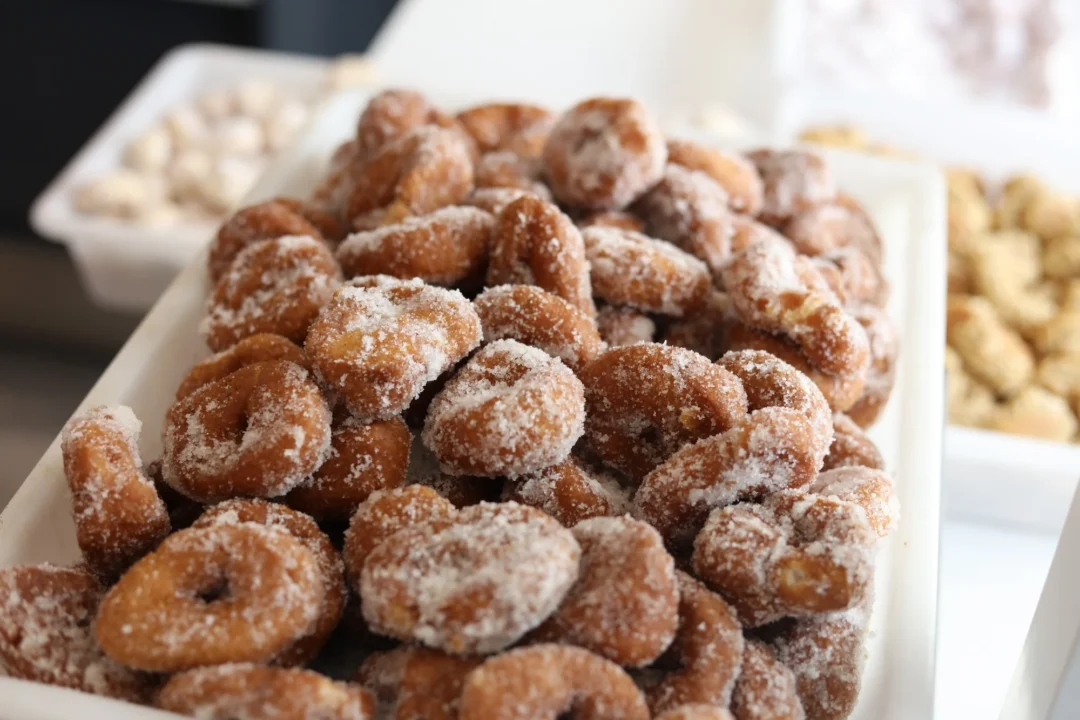
The preparation of bunyols is often a family affair, with older generations passing down their techniques for achieving the perfect balance of crispiness and softness.
The cultural significance of Easter cuisine in Ibiza
Beyond their delicious flavours, these traditional Easter dishes and sweets reflect Ibiza’s deep cultural heritage and the importance of food in community bonding. Easter is not just a time for religious observance but also an occasion for families to come together, sharing meals that have been prepared with love and tradition.
Many of these recipes have been handed down through centuries, preserving the island’s historical connection to Mediterranean culinary influences. The presence of cheese, anise, and aromatic herbs in these dishes speaks to Ibiza’s blend of Christian and Moorish gastronomic traditions, while the emphasis on local ingredients highlights the islanders’ close relationship with their land.
In modern times, while many Ibizans continue to prepare these dishes at home, they are also available in bakeries and restaurants throughout the Easter period, allowing visitors to experience a taste of authentic Ibizan Easter cuisine.
As Ibiza evolves, its Easter culinary traditions remain a link to its past, a reminder that, despite the island’s global reputation as a party destination, its cultural roots run deep. For locals, Easter is not just a celebration of faith but also a tribute to family, heritage, and the timeless joy of sharing a good meal.
